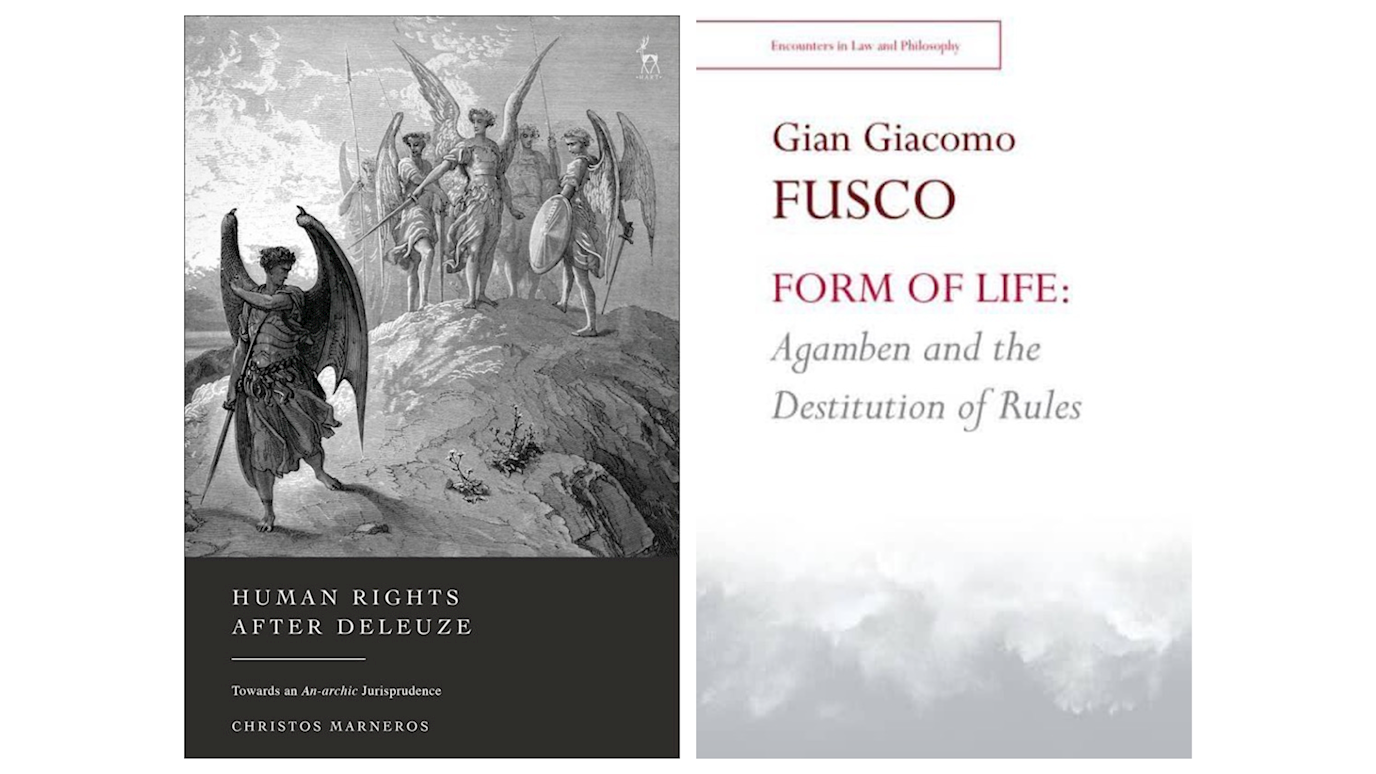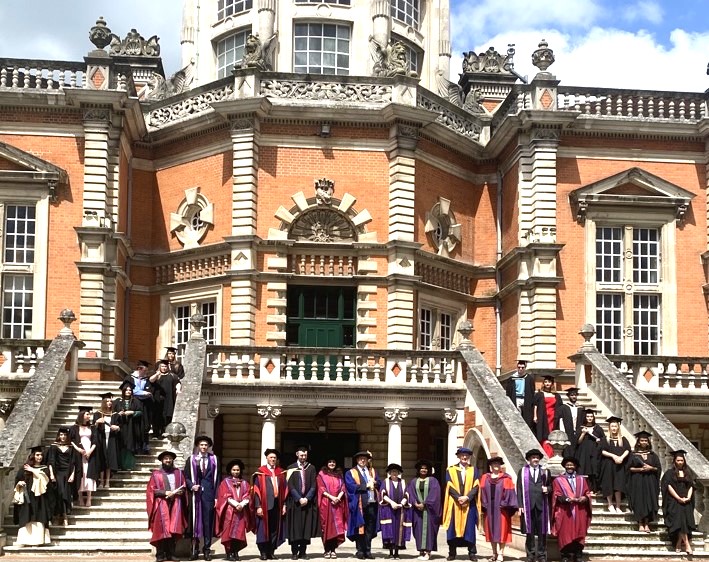A book discussion with the authors, Dr Christos Marneros (Lecturer in Law, Department of Law and Criminology, Royal Holloway, University of London) and Dr Gian-Giacomo Fusco (Lecturer in Law, Kent Law School, University of Kent)

Join us for the joint book launch/discussion of Dr Christos Marneros’ Human Rights After Deleuze: Towards An An-archic Jurisprudence (Hart Publishing, Bloomsbury, 2022) and Dr Gian-Giacomo Fusco’s Form of Life: Agamben and The Destitution of Rules (Edinburgh University Press, 2022).
The event will be in hybrid form:
Dates and times
Fri 3 Mar
18:00 - 21:00
Where
Stewart House, Rm 2/3, 32, Russell Sq, London WC1B 5DN
Pricing
Free
Open to
All
MS Teams Link:
To join the event online (via MS Teams) please follow the link here
Speakers:
Dr Elena Loizidiou is a Reader in Law and the Head of the Department of Law, Birkbeck, University of London. Dr Loizidou is the author of Anarchism: An Art of Living Without Law (Routledge, 2022) and Judith Butler: Ethics, Law, Politics (Routledge, 2007).
Dr Przemyslaw Tacik is Assistant Professor, Institute of European Studies of the Jagiellonian University of Kraków, Poland. He is the author of A New Philosophy of Modernity and Sovereignty: Towards Radical Historicisation (Bloomsbury 2021), The Freedom of Lights. Edmond Jabès and Jewish Philosophy of Modernity (Peter Lang 2019), Przystąpienie Unii Europejskiej do Europejskiej Konwencji Praw Człowieka (The Accession of the European Union to the European Convention on Human Rights, 2017) and Socjologia Zygmunta Baumana (Sociology of Zygmunt Bauman, 2012).
Dr Thanos Zartaloudis is a Reader in Law, Kent Law School, University of Kent. Dr Zartaloudis is the author of Birth of Nomos (Edinburgh University Press, 2018) and Giorgio Agamben: Power, Law and the Uses of Criticism (Routledge, 2010).
Book descriptions:
Human Rights After Deleuze. Towards an An-archic Jurisprudence (Hart Publishing, Bloomsbury, 2022)
This book examines the possibility of creating new ways of existing beyond human rights. Multiple socio-political crises and the dominance of neoliberal and capitalist policies have led legal and political theorists to question the emancipatory promise of human rights and to reconceptualise human rights in theory and practice. The possibility of creating new ways of existing beyond human rights has been left significantly under examined, until now.
Having as its starting point the ferocious, yet brief, critique on human rights of one of the most prominent French philosophers of the 20th century, Gilles Deleuze, the book argues that Deleuze's critique is not only compatible with his broader thought but that it has the potential to give a new impetus to the current critiques of human rights, within the 'disciplinary borders' of legal and political theory.
The book draws upon Deleuze's broader thought, but also radical legal and political theory and continental philosophy. In particular, it investigates and expands on two of Deleuze's most important notions, namely those of 'immanence' and 'becoming' and their relation to the philosopher's critique of human rights. In doing so, it argues that these two notions are capable of questioning the dominant and dogmatic position that human rights enjoy.
Form of Life: Agamben and the Destitution of Rules (Edinburgh University Press, 2022)
At a moment of history in which the fundamental promises of Western modernity are undergoing a decisive crisis, to look beyond the basic categories of human social institutions becomes an urgency. Through a close engagement with Agamben’s concept of form-of-life, this book seeks to challenge the current crisis of juridical, political and economic reality.
The concept of a form-of-life is the centre of gravity around which Agamben has advanced his attempts to think of an alternative politics. It refers to a living dimension that has overthrown the structures of power in which humans are supposedly destined to live, disclosing the possibility of a new understanding of political and legal life. By placing ‘form-of-life’ in the context of contemporary philosophy, this book re-imagines anew some of the basic categories of human socialities – such as work, rights, obligation, property, and use. It explores the ways in which Agamben’s philosophy might be a strategic resource for developing political and legal strategies that leave behind a situation dominated by pervasive sovereign violence.
Drink reception will follow. The event is kindly supported by Royal Holloway, University of London and Centre For Critical Thought, University of Kent.
























